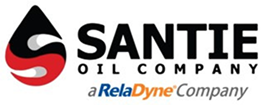During the polar vortex, owners of electric vehicles across the country discovered the lithium-ion batteries in their cars don't stand much of a chance against freezing temperatures. And, just like batteries, the lubricants you use in your own work trucks and on your machines can be affected by the cold.
Industrial lubricants are only effective in polar conditions as long as they're able to maintain their viscosity and flow as the temperature changes. Although lubricants and oil solutions will naturally harden, you don't want a lubricant that outright freezes.
So how do you go about choosing right lubricant for cold-weather operations such as a polar vortex? If you're choosing an oil, synthetics might be your best option.
What makes synthetic lubricants good for polar conditions?
Most oils and grease can withstand temperature drops up to 15 degrees Fahrenheit. But once the temperature gets down to 5 degrees, many lubricants can't perform.
Synethic oils are one of the top choices for those who need heavy duty lubricants for cold weather. Synthetics can handle temperatures of 5 degrees or below while maintaining excellent flow.
These heavy duty lubricants also have a high viscosity index, great metal polarity in cold temperatures, extreme pressure protection, corrosion protection, and low coefficients of friction.
What about grease in cold temperatures?
Grease is a base oil emulsified with a thickening agent. When you use grease in cold temperatures, it's recommended to use calcium, lithium, or aluminum complex. Aluminum complex, in particular, provides high-level protection and load-carrying abilities.
Additives also play a major role in grease performance. Look for grease that has a balance of base oil, thickener, and additive. These types of greases offer benefits like:
- Salt resistance
- Anti-wear and extreme-pressure protection
- Water emulsification
- Synthetic oil compatibility
- Metal compatibility
- Smooth operation and low start-up torque
- Tackifiers for extra adhesion
It's important to remember whether you're using grease or oil that you need to be proactive when it comes to choosing lubricants for cold conditions. The wrong lubricant can cause unexpected equipment shut down because the lubricant doesn't work in freezing temperatures.
Where can I buy wholesale heavy duty lubricants?
When it comes to metalworking fluids and construction lubricants, you need oils that work no matter the weather. That's why 89% of lubrication professionals consider an oil's viscosity index before choosing a lubricant.
Santie Wholesale Oil Company gives you the chance to buy your heavy duty lubricants wholesale all in one place. To learn more about our metalworking fluids and corrosion preventatives, contact Santie Wholesale Oil Company today.

